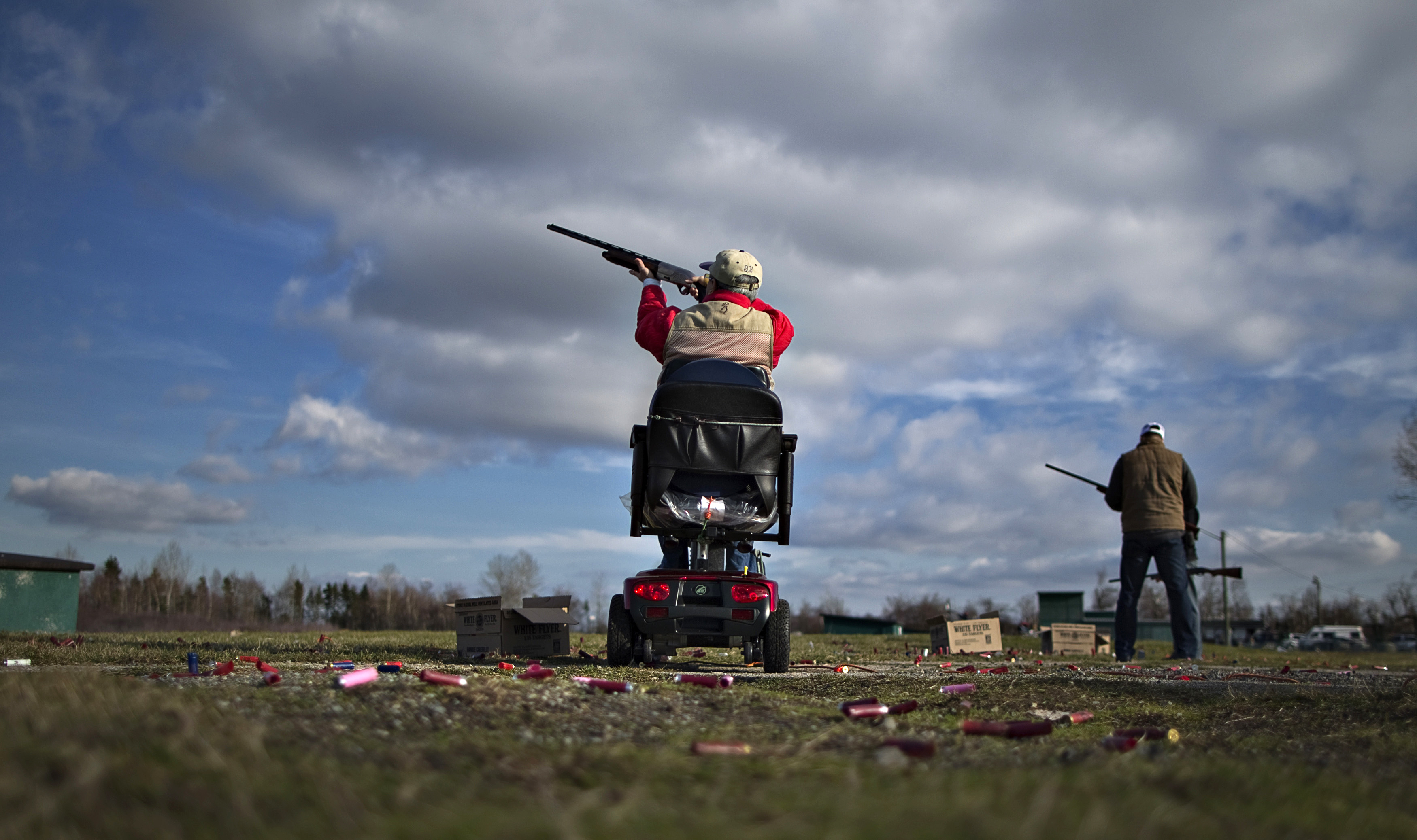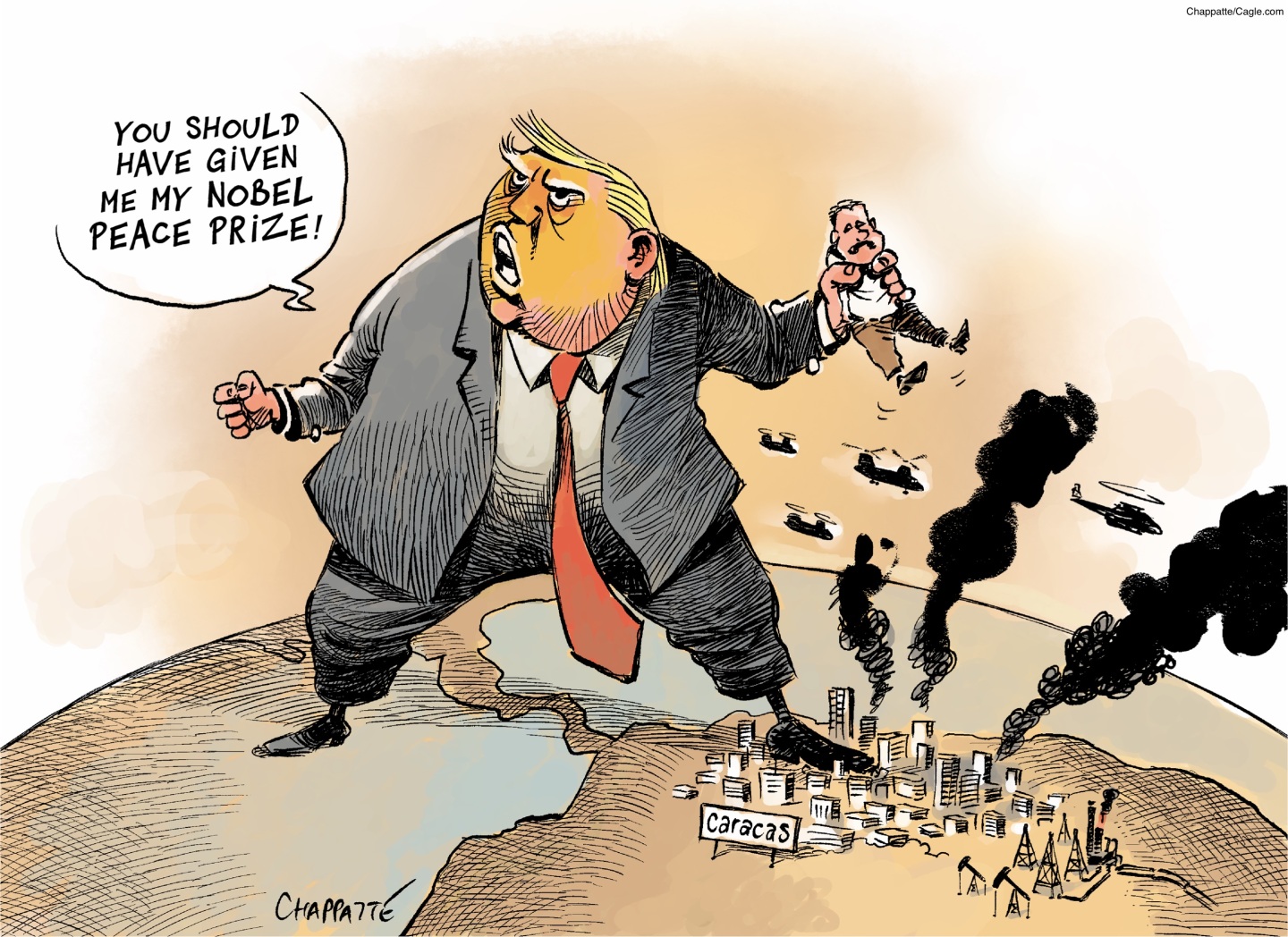Why the answer to America's gun problem lies due north
Emulate Canada?


As we're once again trying to figure out what to do about our gun problem — the constant mass shootings, the 11,000 or so gun homicides every year — one of our biggest failures is one of imagination. We've gotten so used to the idea that American society is saturated with instruments designed to kill people that we find it tough to even figure out how we might alter our system of gun laws to make all those deaths less likely.
The result is that it gets treated as big news when the White House says the president might support an extremely modest gun measure that does little more than encourage government agencies to comply with existing reporting rules regarding the background check system. So it's time to think at a more fundamental level and examine the presumptions that undergird our system of gun laws. And one useful way to do so is to ask whether we might learn something from the Canadians.
I'm not saying we should adopt their entire set of gun laws, nor am I suggesting that we examine how they deal with the issue because Canada has solved its own gun problem. It hasn't. But there is one important thing we could take from Canada's system, about the fundamental presumption from which gun ownership begins.
The Week
Escape your echo chamber. Get the facts behind the news, plus analysis from multiple perspectives.

Sign up for The Week's Free Newsletters
From our morning news briefing to a weekly Good News Newsletter, get the best of The Week delivered directly to your inbox.
From our morning news briefing to a weekly Good News Newsletter, get the best of The Week delivered directly to your inbox.
Canada shares a similar history with the United States, with a frontier legacy and fairly widespread gun ownership (they even have cowboys!). They have around one-third as many guns per capita as the United States, which still puts them at the higher end among developed nations (the U.S. is at the top, with around one gun for every man, woman, and child). Like us, they started off as a country where guns were widely owned because people needed them for hunting.
But in Canada, if you want to get a gun you're going to have to jump through a few hoops. The first thing you have to do is take a safety course, to make sure you know how to keep and operate a firearm without blowing your own foot off or accidentally shooting your neighbor. Once you've done that, you have to apply for a license, which involves providing two references, people who will attest that you're responsible enough to be a gun owner.
If all you want is a hunting rifle, it isn't that hard. But for the guns that are designed to kill people — handguns and military-style rifles like the AR-15s that are the choice of so many mass shooters — a separate and more restrictive set of regulations kick in.
As it happens, it's extremely difficult to get a handgun license in Canada unless your job demands it, which is a stark difference with the United States. But the principle is one we could emulate, namely that different kinds of guns create different dangers to society, and we should impose much stricter licensing based on those dangers — not just an added layer of paperwork. Given the fact that most gun crimes (like most crimes) are committed by young men, what if we said you can buy a hunting rifle when you turn 18, a handgun when you turn 25, and a military-style rifle, if at all, only when you turn 30?
A free daily email with the biggest news stories of the day – and the best features from TheWeek.com
That sounds crazy, I know. But in most places in the world, the idea that any private citizen can own an AR-15 sounds crazy.
Gun advocates like the National Rifle Association have been working hard in recent years to change state laws so that you should have to prove almost nothing to the government in order to get a gun or a concealed carry license. On concealed carry they've pushed for "shall-issue" laws (as opposed to "may issue"), meaning the government has no discretion to deny anyone such a license unless they fall into one of a few categories like convicted felons. Even better as far as the NRA is concerned are the states where you don't even need a license at all to take your gun wherever you want. And their highest priority in Congress is a national "concealed carry reciprocity" bill, which would force every state to allow anyone from any other state to bring their guns in, regardless of the state's own laws.
All of this is meant to reinforce the idea that our presumption should be that everyone gets as many guns as they want, and we as a society have almost no right to demand proof that the person buying them is that "responsible gun owner" we've heard so much about. But the truth is that the vast majority of Americans — even gun owners themselves — already accept that the right to possess instruments of deadly force isn't without limit and should come with responsibilities. Virtually all Americans (over 90 percent in every poll) support universal background checks, which the NRA opposes and Republicans have repeatedly killed in Congress. Most Americans don't think anyone should be able to own military-style rifles (or "assault weapons"). Support for keeping felons or those with mental illness from being armed is nearly universal as well.
Yes, we have a Second Amendment, and the Supreme Court ruled in 2008 for the first time that it confers an individual right to own guns, not just as a member of a militia as the amendment actually says. But none of our constitutional rights are limitless. Unlike every other developed country, the United States is soaked in blood from gun violence in large part because we've accepted the idea that almost anyone should be able to get whatever guns they want with as little requirement as possible to show that they can use them responsibly. That's one presumption it's past time we discarded.
Paul Waldman is a senior writer with The American Prospect magazine and a blogger for The Washington Post. His writing has appeared in dozens of newspapers, magazines, and web sites, and he is the author or co-author of four books on media and politics.
-
 5 hilariously slippery cartoons about Trump’s grab for Venezuelan oil
5 hilariously slippery cartoons about Trump’s grab for Venezuelan oilCartoons Artists take on a big threat, the FIFA Peace Prize, and more
-
 A running list of everything Trump has named or renamed after himself
A running list of everything Trump has named or renamed after himselfIn Depth The Kennedy Center is the latest thing to be slapped with Trump’s name
-
 Do oil companies really want to invest in Venezuela?
Do oil companies really want to invest in Venezuela?Today’s Big Question Trump claims control over crude reserves, but challenges loom
